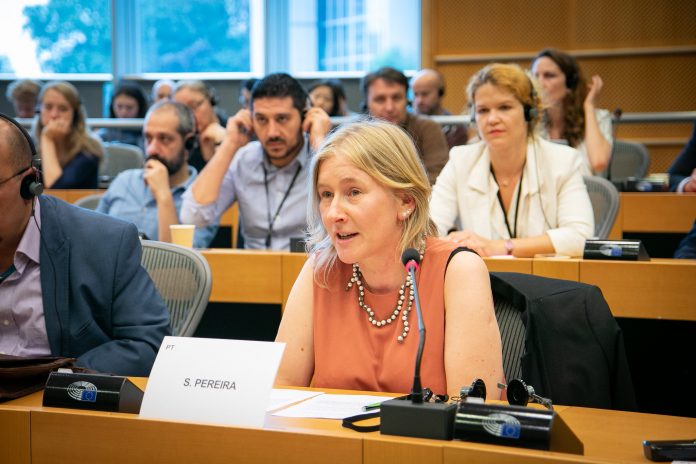MEPs demand the EU and its member states propose concrete measures to uphold women’s rights and reduce gender inequalities in the EU.
In a non-legislative report adopted on Wednesday by 500 votes in favour, 105 against and 87 abstentions, MEPs reiterated that equal pay and equal treatment are an essential precondition for women’s equal rights, economic independence and career fulfilment. MEPs are concerned by the continuing gender pay gap in the EU (14.1%) and pension gap (29.5%), as well as by the often-precarious nature of the working situation of women. They call on member states to take practical measures to ensure that women have equal access to the labour market and employment, and that they have equal pay and equal labour rights. To enforce this, businesses should, for example, be punished when they fail to comply with labour legislation. MEPs also welcome the Commission’s proposal on binding pay transparency measures but stress that pay transparency alone will not be enough to address deep-rooted gender inequalities.
Ensuring work-life balance
To ensure that everyone, regardless of gender, has the right to work and balance their professional and private lives, MEPs call for the EU and its member states to further reinforce maternity and paternity entitlements by improving the provision of periods of equal and fully paid leave. They ask for flexible working arrangements following maternity, paternity and parental leave and for more investments in high-quality and local childcare services.
Eradicating violence against women
Noting that the pandemic and associated lockdowns have led to an increase in violence against women, MEPs call on member states to take all necessary measures to ensure that the perpetrators of abuse are identified and pursued by the police. They stress the need for specific programmes to protect and monitor the victims of domestic violence and for measures that improve access to justice and shelter. To tackle gender-based violence, MEPs say Bulgaria, Czechia, Hungary, Latvia, Lithuania and Slovakia should ratify the Istanbul Convention, and comprehensive EU legislation on this matter is needed.
Guaranteeing access to sexual and reproductive health and rights (SRHR)
The draft report restates that access to SRHR is a fundamental right that may not be in any way diluted or withdrawn. MEPs emphasise that violations of SRHR, including the denial of safe and legal abortion care, constitute a form of violence against women and girls. MEPs call on the Commission and member states to step up their support for human rights defenders, healthcare providers working to advance SRHR, and civil society organisations working on SRHR.
Rapporteur Sandra Pereira (The Left, PT) said: “We need a change in policy to strengthen and enforce women’s rights. To tackle inequalities, we need to increase wages, defend and promote high-quality universal public services, such as free access to health and education, but also access to housing and justice. Combatting all forms of violence against women has to be a priority. This is the only way to achieve equality between women and men.”
According to the European Institute for Gender Equality’s Gender Equality Index, the EU is at least 60 years away from achieving complete gender equality. The EU’s score has increased by only 4.9 points since 2010. In 2021, member states achieved an average score of 68 out of 100, with more than a third of them registering less than 60 points.

